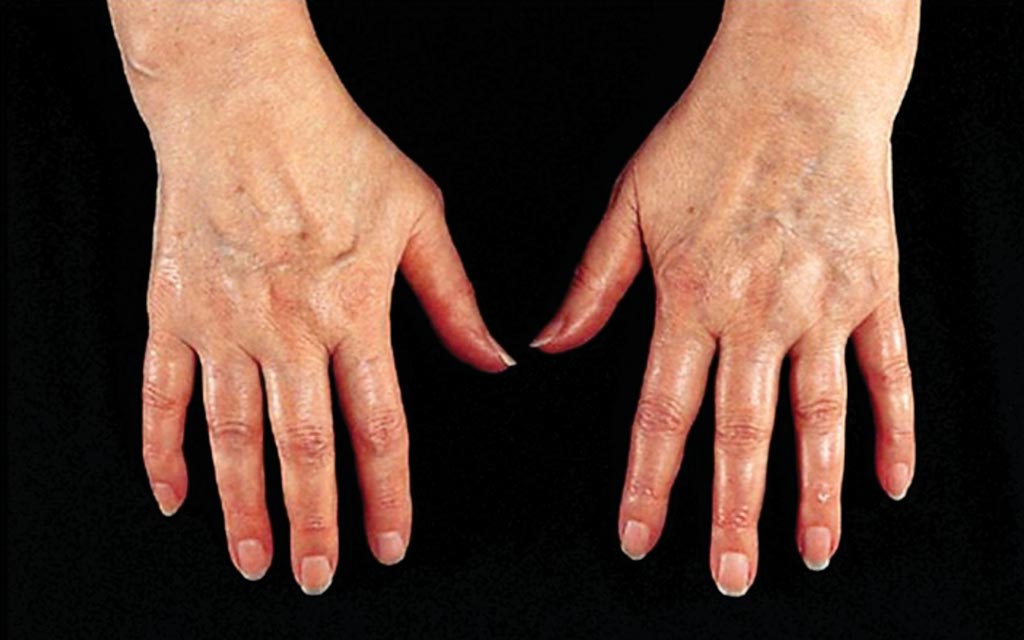Analyzing Antibodies Predicts Prognosis of RA
By LabMedica International staff writers
Posted on 14 Apr 2017
Rheumatoid arthritis (RA) is an inflammatory disease where the joints become stiff and swollen, and is associated with future joint destruction. This is caused by immune cells, which normally attack foreign organisms but instead react against the tissues in the joints, resulting in inflammation.Posted on 14 Apr 2017
In some RA patients antibodies are formed that target collagen II, an important protein in joint cartilage. These antibodies drive the inflammation early in the disease and the highest amounts of collagen antibodies have been detected at the time of diagnosis, after which the levels decrease during the first year.

Image: The hands of a patient with early signs of rheumatoid arthritis (RA) (Photo courtesy of Dr. Gergely Péter).
Scientists at Uppsala University and their colleagues followed a large group of RA patients during five years to see if there is a correlation between the collagen antibodies and disease development. There were 2,000 patients and 960 controls that were included in the study between 1996 and 2005. Comparisons were done concerning C reactive protein (CRP), erythrocyte sedimentation rate (ESR), tender joint count (TJC), swollen joint count (SJC).
The investigators measured anti-fibrillar collagen type II (anti-CII) by enzyme-linked immunosorbent assay (ELISA) using human native collagen type II as antigen. Anti-cyclic citrullinated peptide (CCP2) was measured by ELISA with a cut-off of 25 U/mL. Genotyping was done by polymerase chain reaction (PCR) using sequence-specific primers.
Among 1,476 patients, 97 (6.6%) were anti-CII positive and 855 (57.9%) were anti-CCP2 positive. Thirty-nine patients (2.6%) had only anti-CII, 797 (54%) had only anti-CCP2, 58 (3.9%) were double positive and 582 (39.4%) lacked both antibodies. Among the controls, 15/926 (1.6%) were anti-CII positive (34 showed non-specific binding) and 16/958 (1.7%) were anti-CCP2 positive. Anti-CII levels were significantly higher among patients than among controls (median (mean) 13.3 (38.4) AU/mL versus 9.3 (21.6) AU/mL.
The authors concluded that Anti-CII seropositive RA represents a distinct phenotype, in many respects representing the converse to the clinical, genetic and smoking associations described for anti-citrullinated protein peptide autoantibodies. Although not diagnostically useful, early anti-CII determinations predict favorable inflammatory outcome in RA. The study was published on March 24, 2017, in the journal Annals of the Rheumatic Diseases.













